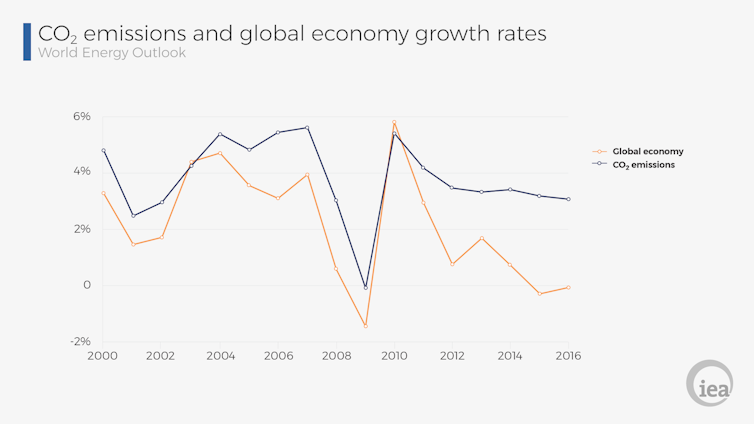At the COP24 conference in Poland, countries are aiming to finalise the implementation plan for the 2015 Paris Agreement. The task has extra gravity in the wake of the recent IPCC report declaring that we have just 12 years to take the action needed to limit global warming to that infamous 1.5ᵒC target. Although the conference itself is open to selected state representatives only, many see the week as an opportunity to influence and define the climate action agenda for the coming year, with protests planned outside the conference halls. A crucial role of environmental activists is to shift the public discourse around climate change and to put pressure on state representatives to act boldly. COP24 offers a rare platform on which to drive a step change in the position of governments on climate change. However, many environmental movements in Europe are not offering the critical analysis and radical narratives needed to achieve a halt to climate change. Read more: Extinction Rebellion: I'm an academic embracing direct action to stop climate change
 Economic growth and carbon emissions are closely linked. International Energy Agency
Practically, what this means is that as long as economic growth continues to expand rapidly and indefinitely, so too will the quantity of CO₂ in the atmosphere and the associated environmental and social impacts.
To address climate change, therefore, we must address the root cause of this planetary ailment: the ideology of growth first, growth always. By moving away from growth-oriented societies in Europe and other advanced economies, towards ones that prioritise environmental and social health, we stand the slimmest chance of solving our climate crisis, while still allowing the poorest economies globally to meet their economic needs.
Economic growth and carbon emissions are closely linked. International Energy Agency
Practically, what this means is that as long as economic growth continues to expand rapidly and indefinitely, so too will the quantity of CO₂ in the atmosphere and the associated environmental and social impacts.
To address climate change, therefore, we must address the root cause of this planetary ailment: the ideology of growth first, growth always. By moving away from growth-oriented societies in Europe and other advanced economies, towards ones that prioritise environmental and social health, we stand the slimmest chance of solving our climate crisis, while still allowing the poorest economies globally to meet their economic needs.

Bewusster Konsum liegt im Trend. Nie waren die Deutschen umweltbewusster. Nie haben sich mehr Menschen hierzulande Gedanken über die Folgen ihrer Kaufentscheidungen gemacht. Die Politik möchte das unterstützen. Erst Anfang des Jahres hat die Bundesregierung ein neues „Nationales Programm für Nachhaltigen Konsum“ verabschiedet. Das richtige Konsumieren soll für den Einzelnen einfacher gemacht we...
With the "Islamic Declaration on Global Climate Change" published by the International Islamic Climate Change Symposium earlier this month, another world religion has expressed heavy concerns about the pursuit of relentless economic growth. Professor Odeh Al Jayyousi, one of the members of the Symposium, had attended our summer school on degrowth and climate justice right before the symposium a...
Sabine Reiner schreibt mit Blick auf die Krise in Südeuropa: „Kein Wachstum ist auch keine Lösung.“ Die ungewollte Rezession kann trotz ihrer katastrophalen Auswirkungen jedoch kein Grund zur pauschalen Ablehnung einer Postwachstumsökonomie sein. Im Gegenteil, die uns dort vor Augen geführte bedrohliche Entwicklung verdeutlicht die Notwendigkeit einer vom Wachstum unabhängigen Wirtschaft und Gesellschaft: mit sozialen [...]